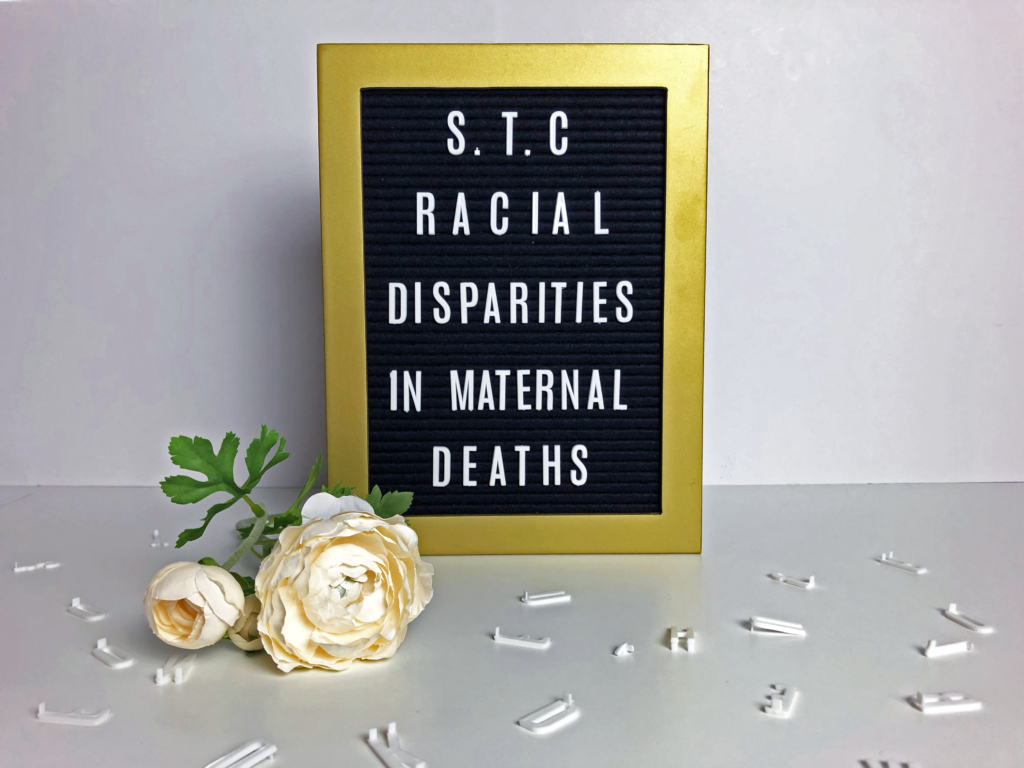Black women are at a particularly high risk for maternal death. Combating systemic racism in health care requires training, community and vulnerability.
By Regine Malibiran
According to the Centers for Disease Control, approximately 700 American women die from pregnancy-related complications in the U.S. annually. Black women are at a particularly high risk: They are three times more likely to die from pregnancy-related complications than their white counterparts. With such a significant outlier and high stakes, it’s necessary to call out the root cause: systemic racism.
One of the key challenges is that historically, health-care professionals have not been trained to address bias and cater their care for black patients accordingly.
“As a nurse, it was not really something that I was educated to even think about in a formal setting,” shares Danica Sumpter, a clinical assistant professor at the University of Texas School of Nursing who’s focused on educating faculty and students about combating systemic racism. “I knew that racism existed based on my experiences, but it wasn’t something that we talked about a lot at home—and we certainly didn’t discuss it at work.”
Lack of intentional training contributes to mistrust between patient and provider. If a provider is not intentionally questioning preconceived notions and acting accordingly, at best, patients become less likely to share their symptoms and pains. At worst, lives are lost.
Nakeenya Wilson, a member of the Black Mamas Community Collective, joined the organization after a traumatic birth experience. Wilson suffered from preeclampsia, a complication in which a woman develops high blood pressure during pregnancy. According to Dr. Candice Walker, an OB-GYN at Baylor Scott & White, preeclampsia carries with it the risk of seizure and stroke.
“There were a lot of complications during [my second] birth where the nursing staff were not appropriately responsive to my health needs,” Wilson shares. “The doctor told my nurse to very closely watch my blood pressure and gave her specific vitals. I remember vividly her rolling me down this long skybridge in a wheelchair. We got halfway across and she stopped, looked down and said, ‘Shoot, I forgot what the blood pressure numbers were.’ ”
On the other side of the coin, identifying pregnancy-related complications in black women can be a challenge because women of color are often socialized to persist through any hardship.
“We’ve been reared by other women who taught us that you don’t complain. You dig your heels in and you deal with it. We translate
that into as many aspects of our life as we can,” says Dr. Crystal Berry- Roberts, an OB-GYN at Austin Regional Clinic. “That hinders us from advocating more for ourselves. We think that if we complain, then we’re not the strong women that our mothers reared us to be.”
Fortunately, advocacy for black women’s health has increased in the past decade, supported by both research and anecdotes. Icons like Serena Williams and Beyoncé recently opened up about their pregnancies and elevated these conversations to a national scale.
Sumpter’s work at UT is a hopeful sign that future health-care professionals receive the training they need. For now, she, alongside Wilson, Berry-Roberts and Walker, strongly emphasizes the importance of community.
“Women should support other women. This empowers and energizes us during those difficult moments of motherhood,” Walker says.
For health-care professionals striving to provide the best care, Berry- Roberts advises it starts with a basic foundation of compassion and understanding.
“There has to be a clear expression of, ‘I am interested in you as a person and not just as a patient,’ ” she says. “That begins to create a level of trust.”
HOW TO START THE CONVO
Do your research. Utilize word-of-mouth to find providers and consider attending preconception visits so they are with you every step of the way. Providers should conduct their research on implicit bias and resources available to them to expand their perspectives.
Join a community. Organizations like the Black Mamas Community Collective are rich communities that provide catered emotional and educational support to black women and mothers.
Advocate for yourself. You are the expert on your body, so don’t let anyone else tell you otherwise. For those moments when you can’t advocate for yourself, consider enlisting a doula to help.
Be vulnerable. The best patient/provider relationships are rooted in shared vulnerability and trust. When you both know all the details, the provider can give the patient the best care.









